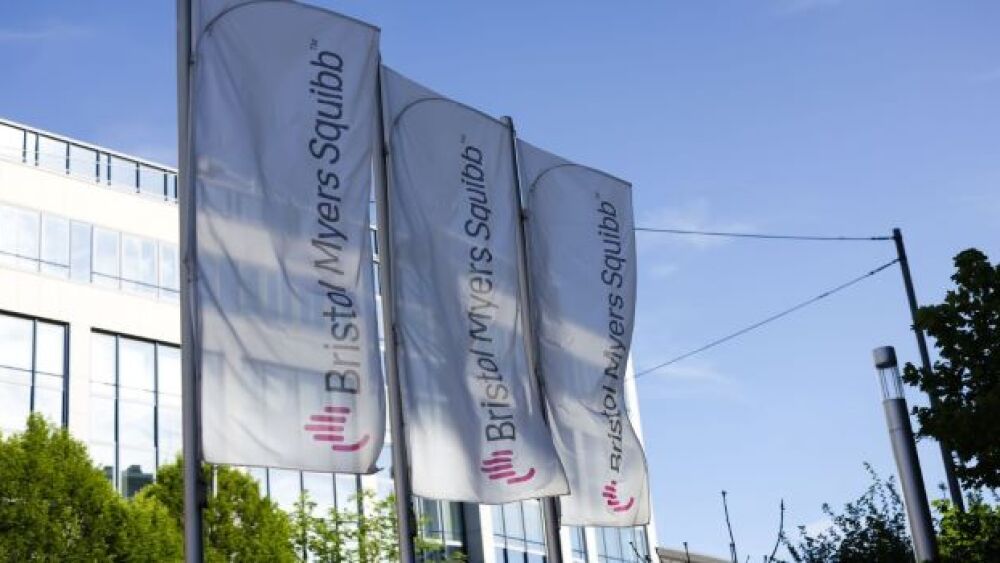Bristol Myers Squibb’s Opdivo (nivolumab) and Yervoy (ipilimumab) as an adjuvant treatment for localized renal cell carcinoma (RCC) failed to hit the primary endpoint.
Courtesy of Jeremy Moeller/Getty Images
Bristol Myers Squibb’s Opdivo (nivolumab) and Yervoy (ipilimumab) are Checkpoint inhibitors, and so far, have been extremely successful. However, they’re not perfect. Today, the company announced that Part A of the Phase III CheckMate -914 which evaluated the two drugs in combination as an adjuvant treatment for localized renal cell carcinoma (RCC) failed to hit the primary endpoint.
Specifically, the combination of two different checkpoint inhibitors, Opdivo against PD-1 and Yervoy against CTLA-4, were being evaluated as adjuvant treatment for patients with localized RCC who have had full or partial removal of the kidney and who are at moderate or high risk of relapse. The trial’s primary endpoint was disease-free survival (DFS) as evaluated by Blinded Independent Central Review (BICR).
“Even with notable progress in the treatment of metastatic renal cell carcinoma, there are still limited treatment options available for patients with localized disease,” Dr. Dana Walker, M.D., vice president, development program lead, genitourinary cancers, BMS, said in a statement. “Opdivo and Opdivo-based combinations have shown survival benefits in several earlier-stage and advanced cancers, including genitourinary tumors, and we are disappointed that the final analysis of CheckMate -914 Part A did not show the same benefit for the post-surgical treatment of patients with localized RCC. Nonetheless, we are dedicated to continuing research and advancing cancer care for all patients with RCC.”
These are enormously profitable drugs for the company. In the first quarter of 2022, Opdivo, the company’s best-selling cancer drug, brought in $1.92 billion, 12% up from $1.72 billion in the first quarter of 2021. Yervoy brought in $515 million, up 13% from the same quarter in 2020.
The drug combo has shown clinical benefit in other RCC patient populations. In CheckMate -214, the combination shows benefit for first-line treatment of previously untreated, intermediate- and poor-risk RCC. Opdivo and Opdivo plus Yervoy combined with a tyrosine kinase inhibitor demonstrated success as first-line treatment for previously untreated advanced RCC in the CheckMate -9ER and COSMIC-313 studies, respectively. And the benefit was demonstrated in CheckMate -025 of Opdivo for second-line treatment of patients with previously treated advanced or metastatic RCC.
BMS is also studying Opdivo and the Opdivo-Yervoy combination with novel drugs that target alternative immune system modulating molecules and pathways in RCC.
Renal cell carcinoma is the most common form of kidney cancer in adults. Globally, it makes up more than 431,000 new cases and 179,000 deaths annually. It is about twice as common in men than in women. It is most prominent in North America and Europe.
The five-year survival rate for people diagnosed with metastatic, or advanced, kidney cancer is 14%. The five-year disease-free survival (DFS) rate for people with localized disease that can be resected (surgically removed) is slightly over 50%.
On July 22, the European Medicines Agency (EMA)’s Committee for Medicinal Products for Human Use (CHMP) recommended approval of a fixed-dose combination of Opdivo and relatlimab, a combination marketed as Opdualag in the U.S., for first-line treatment of advanced melanoma in adults and kids 12 years and older with tumors that expressed PD-L1.
“We are very proud of the role we have played in progressing the treatment of advanced melanoma over the years,” Paul Basciano, development lead, relatlimab, BMS said. “As part of our mission to deliver new medicines for patients, we have continued to develop new dual immunotherapy combinations. This positive CHMP opinion marks the first step toward the potential approval of the first LAG-3 blocking antibody combination — and the third distinct checkpoint inhibitor for BMS — for advanced melanoma patients in the EU.”
The FDA approved Opdualag on March 18, 2022, for this indication. Relatlimab is an antibody that blocks LAG-3, another checkpoint receptor.





